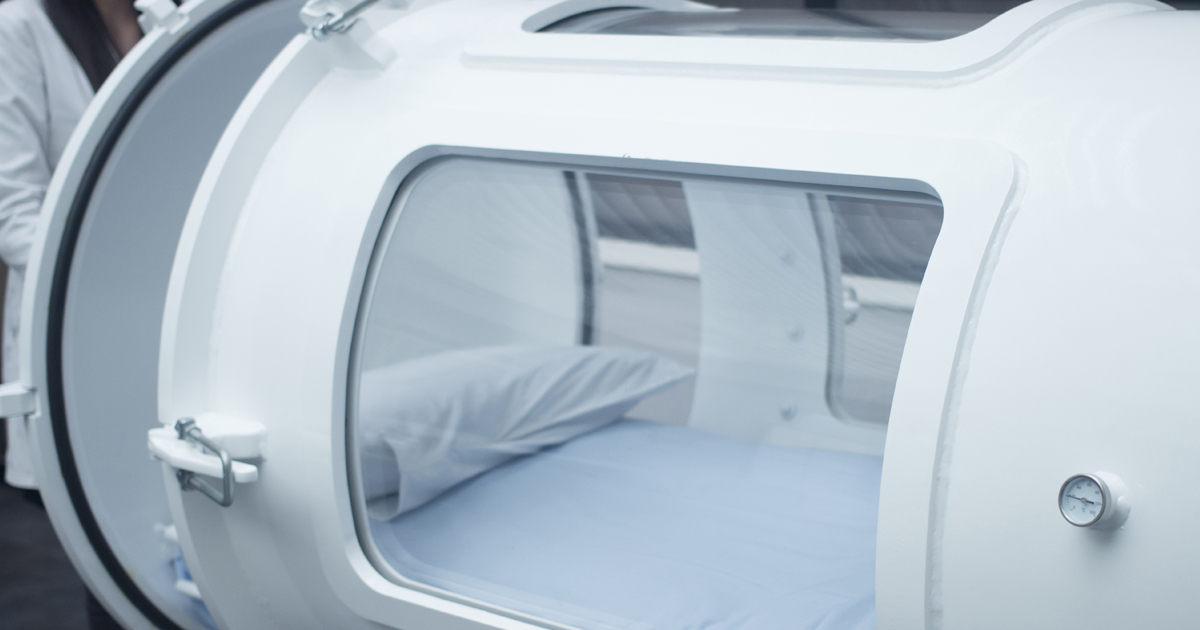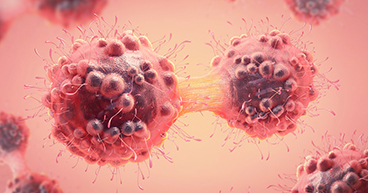
Oxygen is one of life's essential ingredients. "Every cell in our body requires oxygen to survive," says Wissam Jaber, MD, Director of Interventional Pulmonary Medicine at our Phoenix hospital. "We are built to consume oxygen." Cancer cells' relationship with oxygen is a bit more complicated, and that realization has led to decades of research into whether oxygen is good for cancer or bad for it. The answers are still not definitive, but some have used the unknowns to fuel unsupported claims that certain types of oxygen therapies, including hyperbaric oxygen (HBO) therapy, can cure cancer. “A lot of people have used myths in a bad way to promise hope to cancer patients who are seeking hope and have not been given any hope in order to take their money in exchange for a therapy that doesn't always work. Hyperbaric oxygen is one of them,” says Wissam Jaber, MD, an Interventional Pulmonologist at our Phoenix hospital.
What is oxygen's role?
When you breathe, oxygen passes into the lungs and is carried into the blood to feed cells throughout the body. Cancer cells also need oxygen to survive, which is one reason why tumors make new vessels that tap into the body's blood supply, a process called angiogenesis. As tumors quickly develop, they outgrow their oxygen supply, but surprisingly, that does not always inhibit their growth. Studies show that some cancers may thrive and resist treatment when they become starved of oxygen, a condition called hypoxia.
So, if tumors thrive and resist treatment when starved of oxygen, wouldn’t flooding them with oxygen have the opposite effect? That's the theory behind hyperbaric oxygen therapy, which has been touted as a viable cancer treatment. The research doesn’t support such a definitive conclusion. Hyperbaric oxygen therapy, which uses high pressure to force concentrated oxygen into the bloodstream, has been used for decades to treat decompression sickness. Also known as "the bends," this condition occurs when air pressure changes from a rapid ascent in altitude or depth, forming nitrogen bubbles in the bloodstream. These bubbles collect in the joints, usually the shoulders, knees, elbows and ankles, causing pain. One of the most common causes of the bends occurs when deep-sea divers ascend to the surface too quickly. Hyperbaric oxygen therapy is also used to treat carbon monoxide poisoning and deep infections or to help wounds heal.
Research on hyperbaric oxygen
Lots of research has been conducted on hyperbaric oxygen’s use as a cancer treatment, often with mixed or inconclusive results. In 2015, scientists in Boston made headlines with a study that concluded flooding tumors with oxygen may help some therapies work better. “Since the root of all problems is the lack of oxygen in tumors, a simple solution is to give tumors more oxygen,” Northeastern University researcher Michail Sitkovsky told NBC News. But the same article quoted the American Cancer Society as saying, “Available scientific evidence does not support claims that putting oxygen-releasing chemicals into a person's body is effective in treating cancer.” A 2012 review by researchers in Norway showed that hyperbaric oxygen slowed the growth of some cancers but not others. The writers called for further research. "Differences in response to oxygen between different cancer types should not lead to an exclusion of HBO as a form of cancer treatment or as a cancer treatment adjuvant for selected types of cancers," the review said.
Clinical trials continue to study oxygen therapy’s ability to treat cancer and some of the side effects of cancer surgery and other treatments. But for now, Dr. Jaber says: "There is no therapeutic role for oxygen in cancer. Presenting higher than normal concentrations of oxygen to treat cancer has not been proven scientifically to kill the disease."


